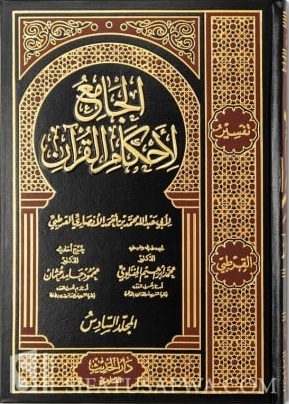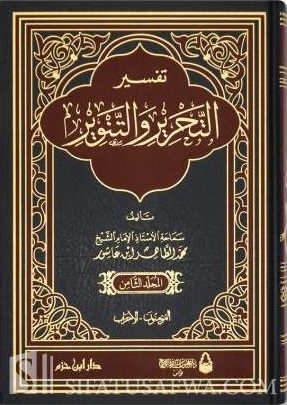Muhammad ibn Ahmad ibn Abu Bakr ibn Farah
QURTUBI is Muhammad ibn Ahmad ibn Abu Bakr ibn Farah, Abu ‘Abdullah al -Ansari alQurtubi, born in Cordova, Spain, in the carly 6005/1200s. His father was killed in a raid by Spaniards in the Reconquista. At another attack he was chased down by two enemy horsemen on an open plain, so he recited “And whenever you recite the Quran, We put between you and those who believe not in the afterlife a covering veil of incomprehension” (17.45), and the first nine verses of surat Ya Sin, and Allah made him seem to disappear to the Spaniards, who were so close behind him he heard one of them say to the other, “Diablo (A devil)!” He escaped to Egypt, where he authored works on the sciences of hadith and tenets of faith, though his greatest achievement was his twenty-volume al-Jami’li ahkam al-Qur’an (The compendium of the rulings of the Quran]. ...Read More
In his foreword, a marvelous introduction in itself to tafsir and studying the Quran, he notes that he was engaged in it for his entire life, and expended his whole stamina to complete it: “I wrote it as a reminder to myself, a provision laid up for the day I perish, and a good deed to remain after my death.” It stands at the summit of tafsirs that show how rulings and meta-principles of Sacred Law derive from the verses of the Quran, and which verses abrogate others (nasikh wa mansukh), with exhaustive treatment of exegesis, lexicology, and Arabic grammar and inflections, all with a superb and logical order of presentation of the issues. Though a Maliki, he discusses the positions of other schools of jurisprudence impartially, and sometimes finds the rulings of other schools stronger. He is scrupulously fair.His tafsir, like that of his fellow Maliki Ibn ‘Atiyya before him, does not stress rhetoric (balagha) as much as that farther east who followed the lead of scholars such as Zamakhshari, Razi, and Badawi. He was an ascetic who disdained airs, and after living for a space in Alexandria, moved to the village of Munya Abi al-Khusayb in upper Egypt, where he divided his days between worship and writing, and would walk about appareled in a simple caftan and cloth cap, more concerned with matters that would benefit him in the next world. He died there in 671/1273 (al-A’lam (67), 5-322; al-Dibaj almudhahhab (16), 2.308-9; al-Jamiliahkam al-Qur an (38), 1.3, 10.270; and Sheikh Shu’ayb alArna’ut).




